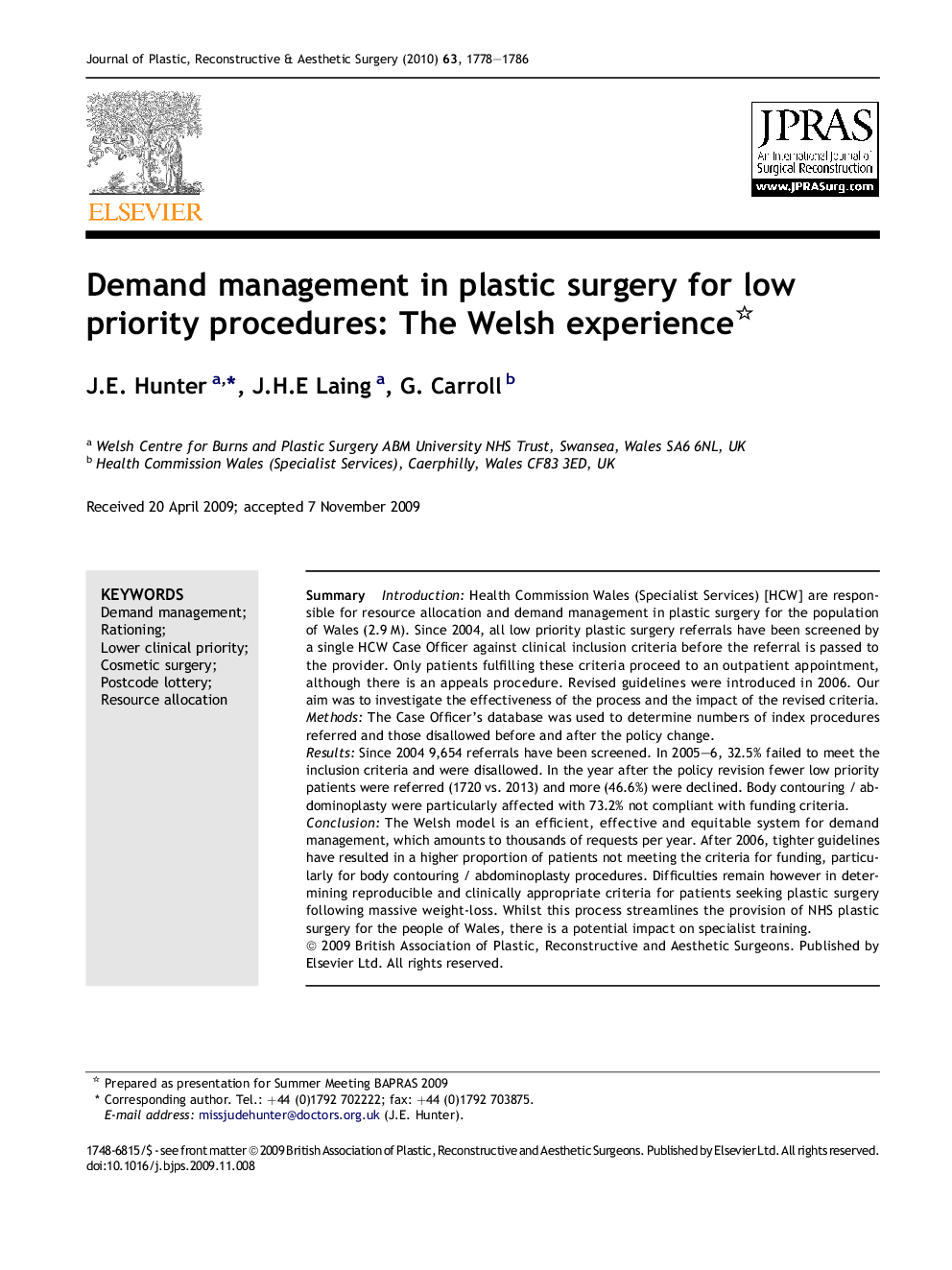| Article ID | Journal | Published Year | Pages | File Type |
|---|---|---|---|---|
| 4121037 | Journal of Plastic, Reconstructive & Aesthetic Surgery | 2010 | 9 Pages |
SummaryIntroductionHealth Commission Wales (Specialist Services) [HCW] are responsible for resource allocation and demand management in plastic surgery for the population of Wales (2.9 M). Since 2004, all low priority plastic surgery referrals have been screened by a single HCW Case Officer against clinical inclusion criteria before the referral is passed to the provider. Only patients fulfilling these criteria proceed to an outpatient appointment, although there is an appeals procedure. Revised guidelines were introduced in 2006. Our aim was to investigate the effectiveness of the process and the impact of the revised criteria.MethodsThe Case Officer's database was used to determine numbers of index procedures referred and those disallowed before and after the policy change.ResultsSince 2004 9,654 referrals have been screened. In 2005–6, 32.5% failed to meet the inclusion criteria and were disallowed. In the year after the policy revision fewer low priority patients were referred (1720 vs. 2013) and more (46.6%) were declined. Body contouring / abdominoplasty were particularly affected with 73.2% not compliant with funding criteria.ConclusionThe Welsh model is an efficient, effective and equitable system for demand management, which amounts to thousands of requests per year. After 2006, tighter guidelines have resulted in a higher proportion of patients not meeting the criteria for funding, particularly for body contouring / abdominoplasty procedures. Difficulties remain however in determining reproducible and clinically appropriate criteria for patients seeking plastic surgery following massive weight-loss. Whilst this process streamlines the provision of NHS plastic surgery for the people of Wales, there is a potential impact on specialist training.
